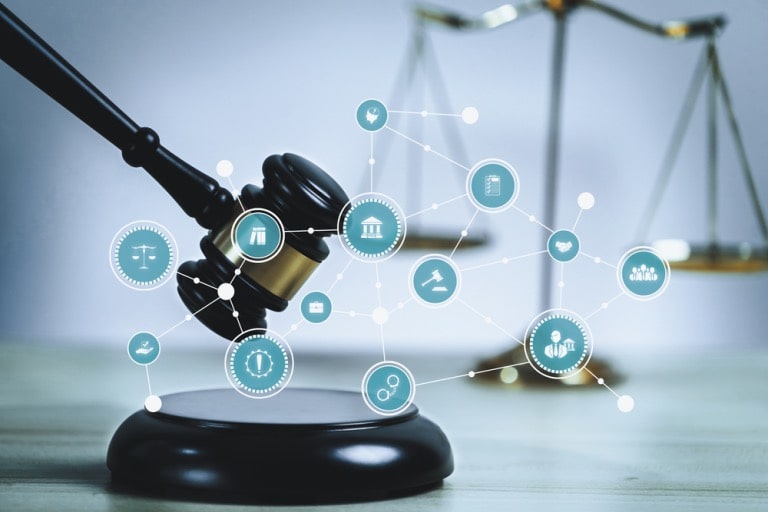The Ethical and Legal Implications of Data Privacy Management

What happens to our personal information in the digital age? The ethical and legal implications of data privacy management are significant. As we share more online, we must consider who accesses our data and how it is used.
Companies have a responsibility to protect user information. Consumers deserve to know their rights. Understanding data privacy management is crucial for everyone. Are you ready to dive deeper into this important topic? Let’s explore the vital aspects of data privacy and its implications together.
The Ethical Implications of Data Privacy Management
The ethical implications of data privacy management are profound and multifaceted. The need for responsible data handling practices becomes paramount. This happens when individuals rely on digital platforms. This section will examine key ethical considerations:
Consent and User Autonomy
Consent is a fundamental aspect of data protection. Users should have the right to know how their data is collected and used. They must give clear consent before any data is processed. This empowers individuals and respects their autonomy. Companies often collect data without explicit permission, which raises ethical concerns.
Users may feel their privacy is being invaded when they are unaware of data practices. It is essential for businesses to be transparent about their data collection methods. Clear communication helps build trust between companies and users.
Transparency in Data Usage
Transparency in data usage is crucial for fostering trust between companies and users. It builds confidence when companies are open about how they handle personal information.
Users have a right to know what data is collected and how it is used. Clear policies help users understand the data protection strategy in place. This strategy should include details about data storage, processing, and sharing.
Moreover, transparent practices can help reduce misunderstandings and fears about data misuse. Companies that fail to provide this information risk losing customer loyalty. Individuals are more likely to engage with brands that focus on transparency.
Accountability and Responsibility
Accountability and responsibility are key components of data privacy management. Companies must take ownership of how they handle personal information. They should have clear policies that outline their data protection practices. If a data breach occurs, businesses need to be ready to respond quickly. This includes notifying affected users and fixing vulnerabilities.
Organizations should conduct regular audits to ensure compliance with data protection laws. By being accountable, companies can show their commitment to protecting user privacy. Users feel safer when they know businesses take responsibility for their data.
Balancing Innovation and Privacy
Balancing innovation and privacy is a major challenge in the digital age. Companies want to create new products and services that improve user experiences. However, these innovations often need personal data. This raises concerns about how that data is used and protected. Finding a middle ground is essential.
Businesses must focus on user privacy while still exploring new technologies. Implementing strong data protection measures can help achieve this balance. Users are willing to embrace innovation, but only if their privacy is respected.
The Legal Implications of Data Privacy Management
In addition to ethical considerations, data privacy management also has significant legal implications. Governments around the world have implemented laws and regulations to protect consumer data. This also ensures companies are held accountable for their handling of personal information. Some key legal aspects to consider include:
General Data Protection Regulation (GDPR)
This is a significant legal framework that governs data protection in the European Union. Its purpose is to enhance individuals’ control over their personal data. GDPR requires organizations to get explicit consent from users before collecting their data. Companies must also inform users about how their data will be processed.
Non-compliance can result in hefty fines. This emphasizes the importance of data security and compliance. Organizations need to implement robust measures to protect personal data from breaches. This regulation sets a high standard for data privacy practices worldwide.
California Consumer Privacy Act (CCPA)
This is a landmark law in the United States. It enhances privacy rights for Californians. It gives consumers greater control over their personal information held by businesses. Under the CCPA, consumers can request details about the personal data collected about them. They also have the right to delete their data and opt out of its sale to third parties.
Companies must inform customers about their data practices in clear language. If companies do not comply, they may face legal penalties. The CCPA aims to improve transparency and accountability in data handling. It reflects growing concerns about consumer privacy in the digital age. As a result, many states are considering similar laws to protect citizens’ data.
Other Laws and Regulations
Besides the GDPR and CCPA, various other laws and regulations also impact data privacy management. HIPAA protects sensitive health information in the U.S. It requires healthcare providers to follow strict rules. This will help keep patient data private.
The Children’s Online Privacy Protection Act (COPPA) protects kids’ data. It applies to those under 13. This law requires parental consent before collecting data from minors. Countries outside the U.S. have their own rules. This includes the Personal Information Protection and Electronic Documents Act (PIPEDA) in Canada.
How to Navigate Compliance and Ethical Considerations for Effective Data Protection?
Navigating these are essential for businesses today. Companies must understand and implement legal requirements like the GDPR and CCPA. Hiring data privacy lawyers can help organizations stay compliant with these regulations. These professionals offer guidance on data handling practices. They also ensure that user rights are respected.
Additionally, it’s important for companies to create clear data protection policies. Training staff on these policies can help employees understand their role. This is in safeguarding personal information. Transparency with users about data practices builds trust and fosters loyalty. By prioritizing compliance and ethics, organizations can effectively protect their users’ data.
All About Data Privacy Management
In conclusion, data privacy management is essential in our digital world. It ensures that personal information is handled with care and respect. Companies must be accountable for their data practices, prioritizing user consent and transparency.
As technology evolves, so should our approach to protecting data. By focusing on ethical standards and legal regulations, we can create a safer online environment for everyone. Looking for more tips and ideas? We’ve got you covered. Check out some of our other posts now.





